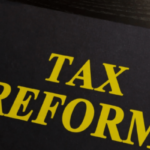The Republic of Congo is intensifying efforts to boost its oil production capacity to 500,000 barrels per day (bpd) over the next three years. This was disclosed by H.E. Bruno Jean-Richard Itoua, Minister of Hydrocarbons, during the 2025 edition of the Congo Energy & Investment Forum (CEIF) in Brazzaville.
Speaking at a Fireside Chat with Daisy Portella, the Minister expressed the country’s plan to host the CEIF annually through 2026 to support this ambition.
“Considering Congo’s objective to reach 500,000 barrels per day in the next three years, I want CEIF to be held annually for the next three years,” he stated.
Read also: African NOCs raise $14.8bn to finance oil and gas growth
Hydrocarbons code under review
As part of the national strategy to attract investment and boost production, Minister Itoua revealed plans to revise the 2016 Hydrocarbons Code. According to him, this review will make the legal framework more appealing and responsive to current industry needs.
“We are working on revisiting the 2016 Hydrocarbons Code to modernise it and make it more attractive,” he said.
The revised code is expected to improve the development of marginal oil fields, which require limited capital investment and offer quicker financial returns.
Read also: AfDB invests over $8 bn in water infrastructure across Africa
Focus on marginal fields and local companies
The Hydrocarbons Minister highlighted the potential of marginal fields to generate immediate value for the national economy. He encouraged greater involvement from local firms, pointing out that these smaller fields present opportunities for domestic players.
“Marginal fields provide immediate cash flow. They require only minimal additional investment and are within the reach of national companies,” he said.
He added that the strategy aligns with ongoing efforts by the African Petroleum Producers Organisation (APPO), stating, “With the African Petroleum Producers Organization countries, we are considering this approach. Once we master this, we can move on to exploration.”
Minister Itoua noted that developing marginal fields could allow national oil companies to grow into fully integrated energy players. “We want to see national companies become true industrial players. There are opportunities for national oil companies to partner and grow.”
Read also: AfDB plans $500 million facility to unlock $10 bn for African smallholder farmers
New role for SNPC in oil development
The Minister also addressed the role of the Société Nationale des Pétroles du Congo (SNPC), the national oil company, in the development of marginal fields.
“SNPC holds some marginal fields, such as Konkuala. I want to see SNPC become the Perenco of Congo. I intend to propose new offshore marginal fields to SNPC,” he stated.
This move is aimed at increasing SNPC’s operational capacity and enabling it to play a larger role in the oil value chain.
Upcoming licensing round and investment drive
To attract more investment in hydrocarbons, Minister Itoua announced plans for a new licensing round. The round will cover deepwater assets, marginal fields, and gas reserves.
“There may be a session soon to launch the new licensing round with Energy Capital & Power. We want to give access to deepwater acreage, some marginal fields, and a special bid round focused on gas,” he said.
The licensing round is intended to attract both regional and international investors into the country’s energy sector.
Read also: $100m investment, 2 deals: China-Africa energy cooperation expands with new agreements
Gas as a strategic priority
Gas will also play a critical role in Congo’s energy agenda. Minister Itoua revealed that the government is accelerating gas-related policies, including the creation of a new gas office.
“We have accelerated the adoption of a gas code and we intend to create the Office Congolais du Gaz to serve as a local intermediary for stakeholders in the gas value chain,” he said. “We are ready to discuss and support any gas project.”
The Minister described gas as a transition fuel that will support the country’s energy security and long-term development.
“Studies show that until 2040, the global energy mix will still require 40% fossil energy,” he stated. “Africa is working for the world, and gas is now recognised as the ideal transition fuel.”










